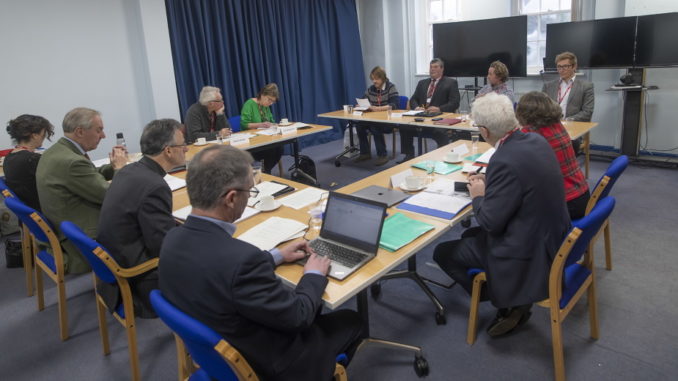
A high-profile inquiry set up with the ambition of saving some of the North Yorkshire’s most rural communities from decline overlooked key issues, was overly negative and produced an “underwhelming” report which featured inaccurate figures, it has been claimed.
North Yorkshire County councillors have given a mixed response to the report of the Rural Commission which was established to examine issues such as farming, schools, digital connectivity, housing and energy transition, with some 85 per cent of the county classed as ‘super sparse’.
A meeting of the council’s executive heard several members and the authority’s chief executive welcome the commission’s report, which was published in July with evidence collected from 70 organisations, and agree numerous actions in response.
Access executive member Councillor Don Mackenzie said there was “no question of the council sitting on its hands” following the commission’s 26 recommendations to the Tory-led authority, with the council’s leader, Councillor Carl Les pledging “this is only the start”.
However, while opposition leader Councillor Stuart Parsons agreed the report was “very good”, he said it had failed to identify one of the main stumbling blocks to national parks being able to oversee affordable housebuilding – the inability for the park authorities to borrow from public works boards.
Scrutiny committee chairman Councillor Stanley Lumley added there were “some gaps in the report” that councillors would need to look into and Liberal Democrat group leader Councillor Bryn Griffiths questioned why the report featured no recommendation about supporting market towns, due to their importance for rural areas.
Officers said the report would be used to “inform positive actions to help support rural communities across the county”.
When the report was put before the council’s Selby and Ainsty constituency committee, it was less warmly received.
Conservative member for Escrick division Councillor Richard Musgrave said he wanted to ask the authority’s leader why it was necessary to set up Rural Commission for North Yorkshire rather than allowing county councillors to examine the issues.
He said: “That’s what we were elected to do.
“Overall, having read the report I have to say I’m a little underwhelmed with it and I certainly don’t share the negative view that the authors seem to have of our great county.”
Coun Musgrave said he did not recognise the issues in the report as being the rural issues in Selby district, areas of which were remote and rural.
He said: “To write a report about the low carbon future and not even mention Britain’s biggest power station is incredible.
“Selby is mentioned twice in the report, once on a map and once in the introduction describing the county’s boundaries, whereas the national parks were mentioned 17 times and the Dales a further nine times.
“This is a report written for North Yorkshire which doesn’t really focus on the challenges we face in this area.
“This is the nub of the challenge for the new North Yorkshire council. I am more concerned than ever that a one size fits all approach just won’t work in this county.”
Officers said the report was aimed at the most remote parts of the county and while some parts of Selby district fell within the commission’s rural and remote remit, the bulk of the district did not, so issues such as a lack of infrastructure following housebuilding and an absence of outstanding rated schools were not examined.
Another Tory member Councillor Mike Jordan said the commission had failed to ask county councillors for their views.
He said: “There’s only 72 county councillors, I would have thought they would have asked them all.”
A spokesman for Selby and Ainsty Nigel Adams MP told the meeting the report appeared to be “unduly negative”.
He raised concerns over the accuracy of the commission’s analysis, as it appeared to state some 14 per cent of residents in North Yorkshire did not have decent broadband.
He told the meeting the figure in Selby and Ainsty was 0.8 per cent and 1.8 per cent in Thirsk and Malton.
He said: “If there is that level of inaccuracy there, how reliable is the rest of the report?”
Officers told the meeting the commission did what it was asked to do, to provide independent challenge, rather than set policy.


Be the first to comment